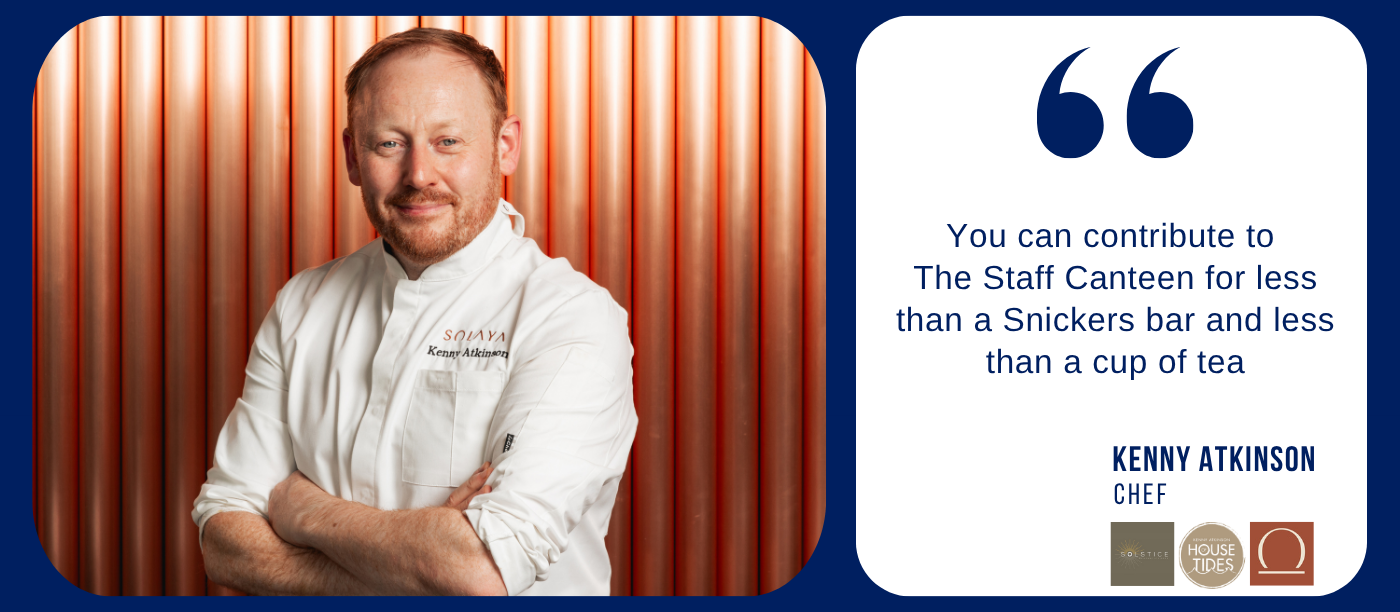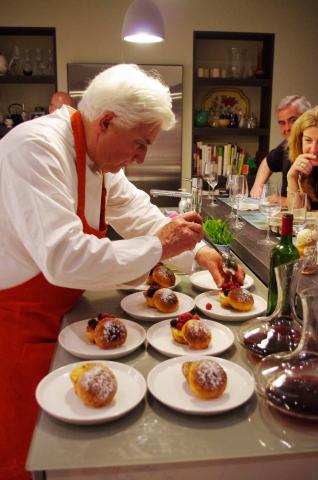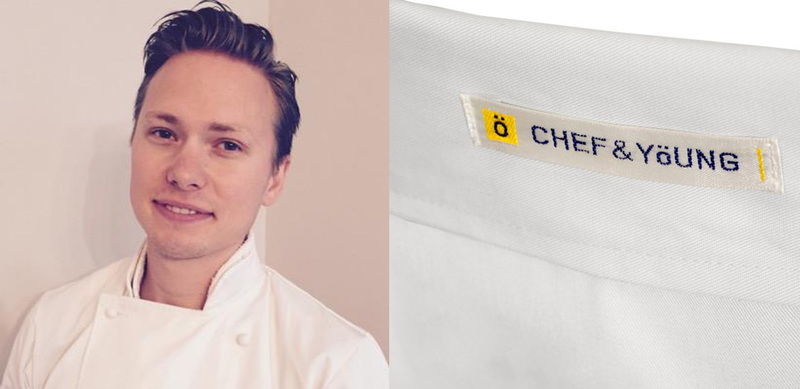For his new blog, Oystein Mojord, Scandinavian chef and co-owner of Chef & Yöung, takes a look at what the industry can do to help improve restaurant staffing and help tackle the chef shortage.
Oystein also shares some vital stats from a recent survey conducted by Chef & Yöung which shows the second most important factor to improve a chef’s job satisfaction would be to learn from new chefs.
 In today’s business, more and more companies offer flexible working hours allowing you to decide where and how to work, operating around your own busy life while still achieving company’s objectives. This modern work culture cherishes a healthier work-life balance, meeting our professional and personal goals and returning greater profits. The restaurant industry has more limited options to offer as it revolves around cooking dinner or serving a table, something you can’t do from home or away from the kitchen. However, this industry is also very slow in responding to persistent staff shortages and adjusting to a changing social environment. Usually traditional views get in the way for new ways of doing things.
In today’s business, more and more companies offer flexible working hours allowing you to decide where and how to work, operating around your own busy life while still achieving company’s objectives. This modern work culture cherishes a healthier work-life balance, meeting our professional and personal goals and returning greater profits. The restaurant industry has more limited options to offer as it revolves around cooking dinner or serving a table, something you can’t do from home or away from the kitchen. However, this industry is also very slow in responding to persistent staff shortages and adjusting to a changing social environment. Usually traditional views get in the way for new ways of doing things.
There has been a lot said about staff shortages within certain professions – including the chef’s/cooks shortage crisis. This conversation has gotten stale with few real solutions proposed. Perhaps, then, there are other opportunities to ensure happy staff, high retention rates and highly skilled hires than just shouting out about a crisis.
By imagining what the restaurant and hotel industry will look like in 5,10 or 20 years from now might provide insights as to where to look for ideas. Will there be restaurants in the same way as today or will there only be social spaces or homes where freelance chefs will come to cook? There might

be more but smaller restaurants only offering limited opening hours or openings purely based on special occasions. Will the food be cooked and served by people in other kitchens or locations? Will guests make their own food assisted by a rotating schedule of staff?
 What if restaurants did not look at employees as being “permanent” but as s flexible resource they can share between each other creating strong partnerships within the industry? Will chefs band together in smaller “units” hired in for a limited time before moving on to the next location?
What if restaurants did not look at employees as being “permanent” but as s flexible resource they can share between each other creating strong partnerships within the industry? Will chefs band together in smaller “units” hired in for a limited time before moving on to the next location?
A recent survey conducted by Chef & Yöung showed that the second most important factor that would improve chef’s job satisfaction would be to learn from new chefs. Perhaps knowledge exchange is the future and we should reassess what we see as our “owned” assets and perhaps move towards the modern sharing economy to capitalise on common resources? What can we learn from the likes of Uber and AirBnB and when will the restaurant industry face a similar disruptor, forcing us to adapt our view of human capital and a work-life balance?
Oystein Mojord
Chef & Yöung is a Scandinavian pro kitchen gear brand for adventurous chefs and foodies. Everything started when the Norwegian chef, Oystein, travelled around the world and noticed that there was a high demand for quality chefs in the kitchens; meanwhile his colleagues were constantly switching jobs. He decided something had to be done and Chef & Yöung was born to bring in a new attitude among yöung chefs and promote cooking as a lifestyle. Oysterin co-owns Chef & Yöung with Mattias Nordlander who focuses on the sales, marketing and finance side of the business.


 In today’s business, more and more companies offer flexible working hours allowing you to decide where and how to work, operating around your own busy life while still achieving company’s objectives. This modern work culture cherishes a healthier work-life balance, meeting our professional and personal goals and returning greater profits. The restaurant industry has more limited options to offer as it revolves around cooking dinner or serving a table, something you can’t do from home or away from the kitchen. However, this industry is also very slow in responding to persistent staff shortages and adjusting to a changing social environment. Usually traditional views get in the way for new ways of doing things.
In today’s business, more and more companies offer flexible working hours allowing you to decide where and how to work, operating around your own busy life while still achieving company’s objectives. This modern work culture cherishes a healthier work-life balance, meeting our professional and personal goals and returning greater profits. The restaurant industry has more limited options to offer as it revolves around cooking dinner or serving a table, something you can’t do from home or away from the kitchen. However, this industry is also very slow in responding to persistent staff shortages and adjusting to a changing social environment. Usually traditional views get in the way for new ways of doing things.
 What if restaurants did not look at employees as being “permanent” but as s flexible resource they can share between each other creating strong partnerships within the industry? Will chefs band together in smaller “units” hired in for a limited time before moving on to the next location?
What if restaurants did not look at employees as being “permanent” but as s flexible resource they can share between each other creating strong partnerships within the industry? Will chefs band together in smaller “units” hired in for a limited time before moving on to the next location?









